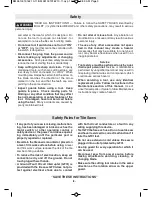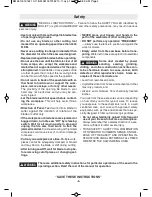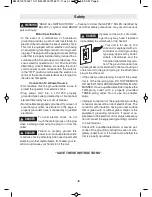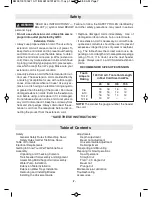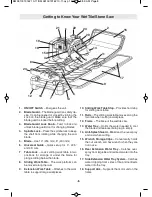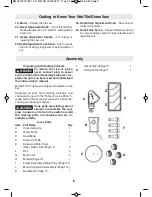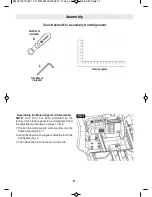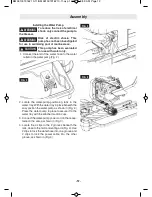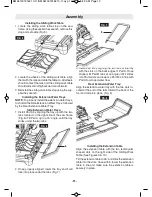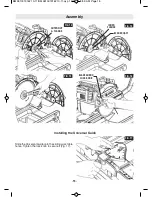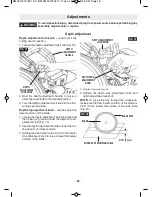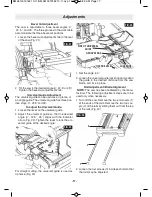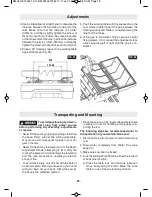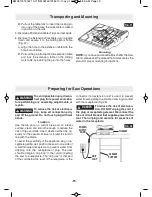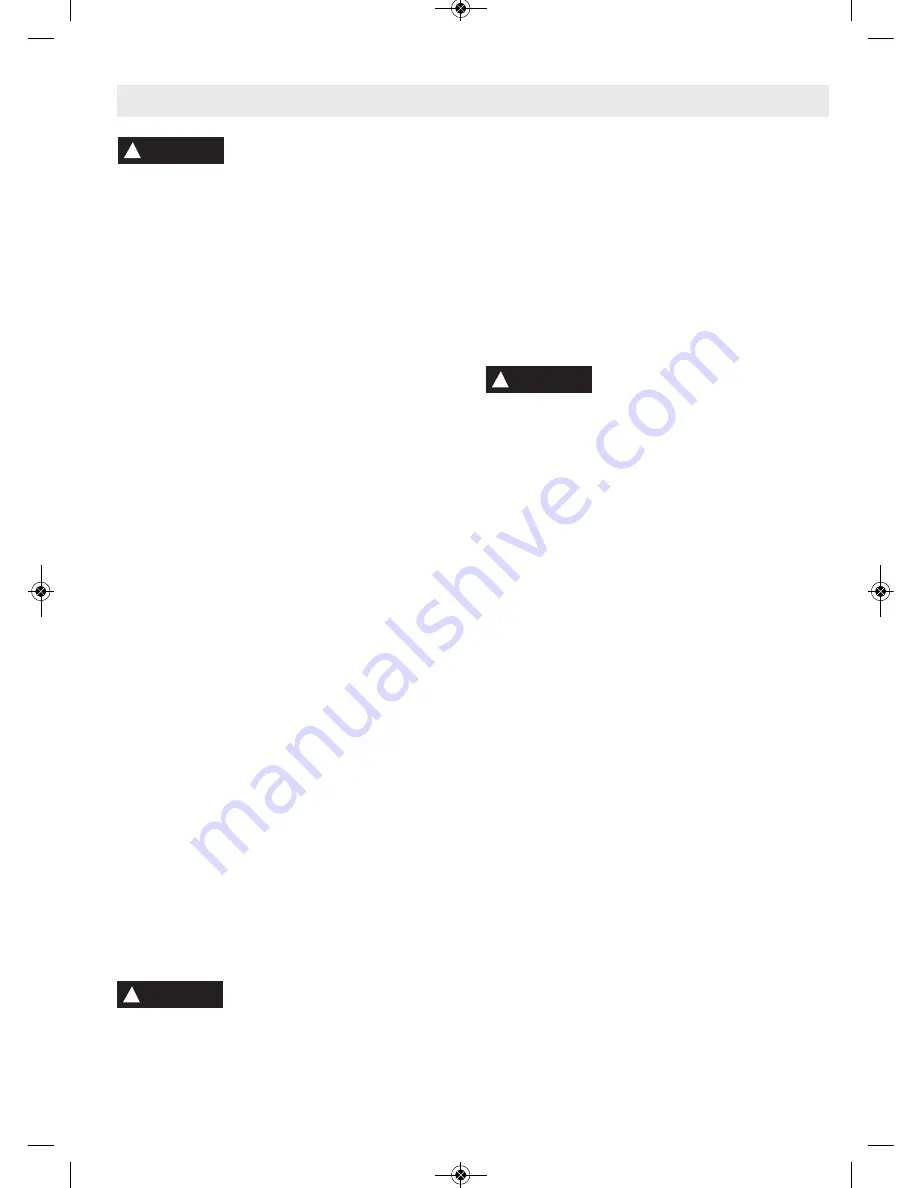
•
Use tool only with smooth edge tile blades free
of openings and grooves
.
•
Do not use any blade or other cutting tool
marked for an operating speed less than 4200
R.p.M.
•
Never use a cutting tool larger in diameter than
the diameter for which the saw was designed.
•
Replace damaged tile blades before operating.
•
Do not use the saw until the table is clear of all
tools, scraps, etc., except the workpiece and
related feed or supported devices for the oper-
ation planned.
Small debris or loose pieces of tile
or other objects that contact the revolving blade
can be thrown with high speed at the operator.
•
Do not reach in back of the saw blade with ei-
ther hand to hold down or support the work-
piece, remove scraps, or for any other reason.
The proximity of the spinning tile blade to your
hand may not be obvious and you may be seri-
ously injured.
•
let the blade reach full speed before contact-
ing the workpiece.
This will help avoid thrown
workpieces.
•
Direction of feed.
Feed work into a blade or
cutter against the direction of rotation of the
blade or cutter only.
•
If the workpiece or blade becomes jammed or
bogged down, turn tile saw “Off” by releasing
switch. Wait for all moving parts to stop and
unplug the tile saw, then work to free the
jammed material.
Continued sawing with jammed
workpiece could cause loss of control or damage
to tile saw.
•
Cut only one workpiece at a time.
Multiple work-
pieces cannot be adequately clamped or braced
and may bind on the blade or shift during cutting.
•
After turning saw Off, wait for blade to stop be-
fore removing cutoff pieces or changing set-
tings.
•
NEVER place your fingers and hands in the
path of the sawblade or other cutting tool.
•
DO NOT perform any operation “fREEHAND”
— always use the fence to position and guide the
work for all cuts.
•
Empty water from tile saw base before trans-
poring.
Water left in base can splash into electrical
components.
Some dust created by power
sanding,
sawing,
grinding,
drilling, and other construction activities con-
tains chemicals known to cause cancer, birth
defects or other reproductive harm. Some ex-
amples of these chemicals are:
• Lead from lead-based paints,
• Crystalline silica from bricks and cement and other
masonry products, and
• Arsenic and chromium from chemically treated
lumber.
Your risk from these exposures varies, depending
on how often you do this type of work. To reduce
your exposure to these chemicals: work in a well
ventilated area, and work with approved safety
equipment, such as those dust masks that are spe-
cially designed to filter out microscopic particles.
•
Do not allow familiarity gained from frequent
use of your tile saw to become commonplace.
Always remember that a careless fraction of a sec-
ond is sufficient to inflict severe injury.
• THINK SAFETY! SAFETY IS A COMBINATION
OF OPERATOR’S COMMON SENSE, KNOWL-
EDGE OF THE SAFETY AND OPERATING IN-
STRUCTIONS AND ALERTNESS AT ALL TIMES
WHEN THE TILE SAW IS BEING USED.
“SAVE THESE INSTRUCTIONS”
“READ ALL INSTRUCTIONS” — Failure to follow the SAFETY RULES identified by
BULLET (•) symbol listed BELOW and other safety precautions, may result in serious
personal injury.
!
WARNING
Safety
-4-
!
WARNING
There are additional safety instructions for particular operations of the saw in the
operating section. Read the rest of the manual for operation.
!
WARNING
BM 2610019162 10-11:BM 2610019162 10-11.qxp 10/20/11 8:59 AM Page 4



